Zombie Bunny is Reader-supported and may earn an affiliate commission through links on our site.
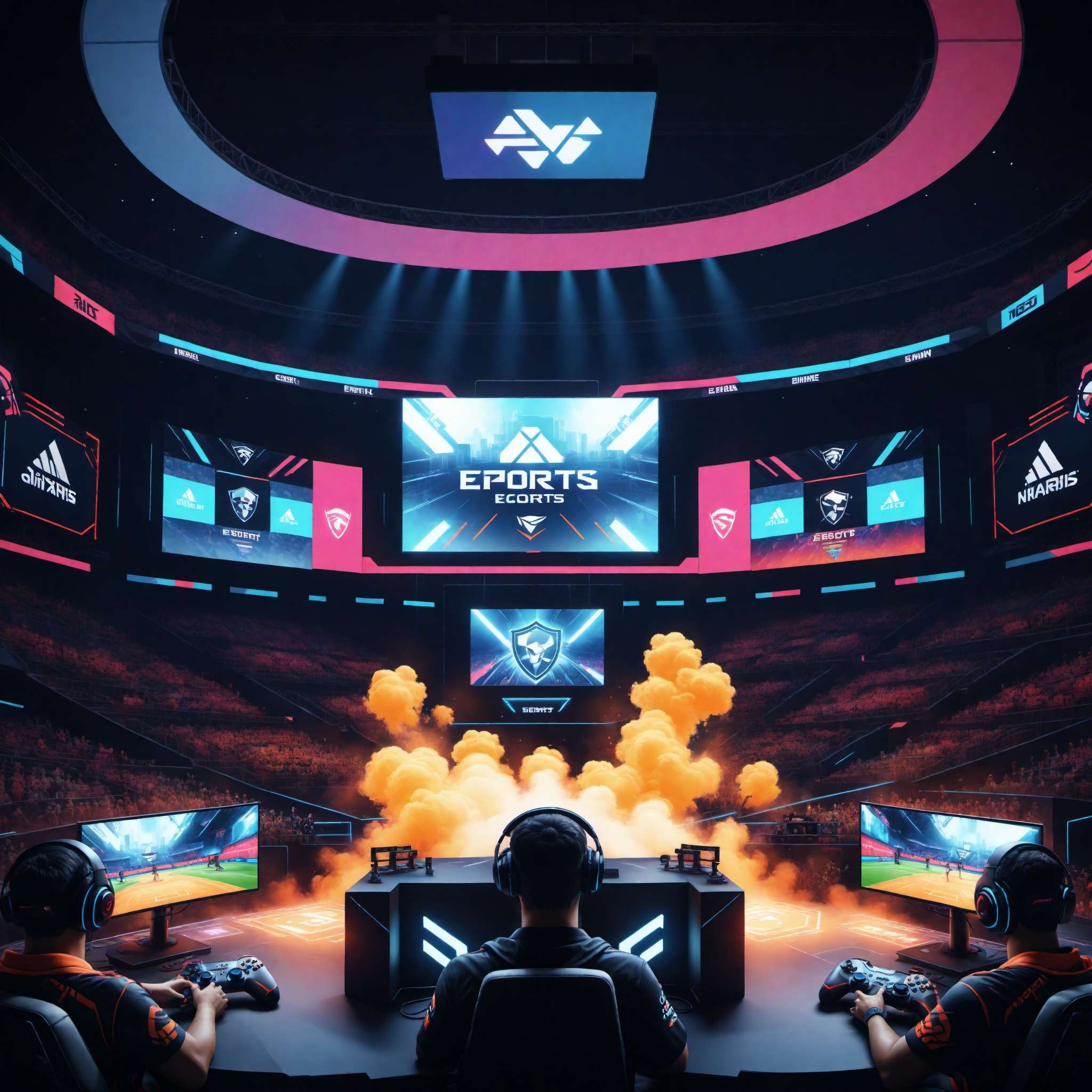
Unlocking the Goldmine: The Lucrative World of Esports
Dive into the fast-paced world of #Esports business. Understand the economics, partnerships, and strategies that fuel this billion-dollar #gaming industry. #competitivegaming #esportsbusiness
Explore the dynamic world of Esports in our comprehensive blog post, where we delve into its transformation from a niche pastime to a multi-billion-dollar industry. Discover its impact on various sectors from marketing and education to the sports industry, and understand its cultural significance in today’s digital age. Uncover insights into how advancements in technology and the emergence of streaming platforms have accelerated its growth. Learn about the diverse career opportunities it presents and the societal norms it continues to reshape. Whether you’re a gaming enthusiast or intrigued by the digital revolution, our blog post offers a fascinating insight into the global phenomenon of Esports.
Introductory Remarks: Unveiling the Esports Phenomenon
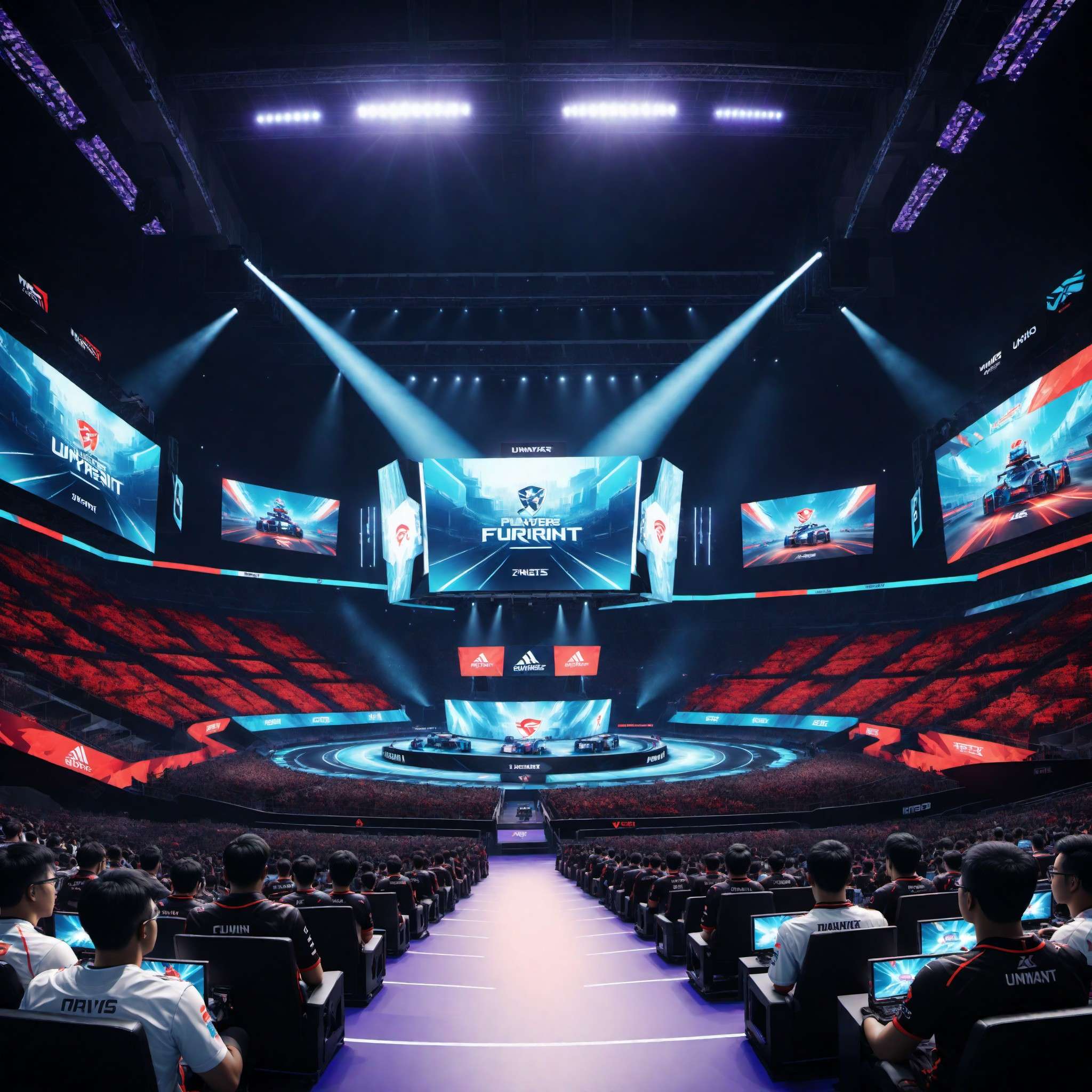
© Copyright , ZombieBunny.Org
Understanding Esports
Esports, a term coined from ‘electronic sports’, represents competitive video gaming at a professional level. It’s an industry where skilled gamers compete against each other, often in organized tournaments, and watched by millions of fans worldwide. To truly grasp its impact, it would be remiss not to mention that in 2019 alone, the Esports audience reached nearly 500 million people globally.
Esports embraces various games, from strategy games like League of Legends and Dota 2, to shooting games like Call of Duty and Fortnite. These games offer high entertainment value, with their intricacy and the intense competition they foster, and are often played in team formats, allowing for a great deal of strategic play. This world of digital battles and triumphs is not confined to the realms of entertainment, as it is also transforming the landscape of industries like marketing, sports, and education. Hence, understanding Esports is not just about appreciating a new form of competition; it’s about recognizing a cultural shift in the digital age.
The rise of the Esports industry
The rise of the Esports industry is a testament to how technology and digital culture can revolutionize old concepts. What began as a niche pastime in the late 20th century, with friends pitting their gaming skills against one another, has morphed into a global phenomenon. It is a multi-billion-dollar industry, with an audience size projected to reach 646 million by 2023, a figure that rivals traditional sports viewership.
This growth has been fueled by technological advancements, the proliferation of internet access, and the emergence of streaming platforms like Twitch that have brought Esports into the mainstream. The industry’s profitability has attracted an array of stakeholders, from game developers to investors, sponsors, and media companies. Moreover, the rise of Esports has also led to the creation of related careers such as professional gamers, team managers, coaches, and even Esports psychologists. As the industry continues to grow and evolve, the potential of Esports seems almost limitless, making it a fascinating area to explore.
Significance of Esports in today’s culture
The significance of Esports in today’s culture extends far beyond its entertainment value. It’s an industry that represents the convergence of technology, sports, and popular culture, shaping the ways people interact, learn, and even perceive competition. Esports has created a new kind of celebrity—the professional gamer, admired not for physical prowess but for strategic acumen, quick reflexes, and in-depth understanding of game mechanics.
This cultural shift has also led to new social spaces and communities. Digital platforms provide a place for fans to gather, discuss strategies, and share experiences, creating a sense of camaraderie and belonging. Moreover, the global reach of Esports allows for cross-cultural exchanges and promotes diversity and inclusivity, with players and fans hailing from different corners of the world.
Esports also influences education, with universities offering scholarships for Esports and incorporating it in their curriculum, acknowledging its value in teaching teamwork, strategic thinking, and digital literacy. Even the business world has been swept up in the Esports wave, recognizing its marketing potential and investing heavily in the industry. In essence, Esports is more than just a game; it’s a cultural phenomenon that is redefining social norms and shaping the future of digital society.
The Golden Evolution: Esports Origin and Growth

© Copyright , ZombieBunny.Org
Origins and early years of Esports
The origins of Esports can be traced back to the 1970s and 80s, with the advent of arcade gaming. The first known video game competition took place at Stanford University in 1972, where students gathered to play “Spacewar”. The prize? A year’s subscription to Rolling Stone magazine. Fast forward to the 1980s, with the rise of home gaming consoles and games like Donkey Kong and Pac-Man, competitive gaming began to gain more popularity.
The 90s marked significant milestones in the evolution of Esports. The emergence of the Internet allowed gamers to connect and compete with each other from different locations. This era witnessed the arrival of popular games like Quake and StarCraft, which hosted some of the earliest online tournaments. In 1997, the Cyberathlete Professional League (CPL) was formed, one of the first major gaming leagues, marking the dawn of organized professional Esports.
The early 2000s saw the rise of Esports in South Korea, a country that played a pivotal role in the industry’s growth. Rapid broadband internet expansion, combined with a cultural acceptance of gaming, led to the country becoming an Esports hub, with games like StarCraft becoming national pastimes. By understanding these origins and early years, we can appreciate how far Esports has come and gain insights into its potential trajectory.
Key moments in the growth of Esports
The growth of Esports has been punctuated by several key moments that have shaped its trajectory. In 2000, the World Cyber Games and the Electronic Sports World Cup were established, marking the first international Esports events. These tournaments set the stage for a truly global competitive gaming industry.
In 2005, the advent of video game streaming platform, Twitch, forever changed the landscape of Esports. Twitch allowed gamers to broadcast their gameplay live, attracting viewers from across the globe and fostering a sense of community among gamers and fans alike. This platform played a pivotal role in popularizing Esports and making it accessible to a global audience.
Another significant moment was in 2013 when the US government recognized Esports players as professional athletes, granting them the same type of visas as traditional sports players. This recognition legitimized Esports and opened the door for more players from around the world to compete in US tournaments.
The introduction of Esports in the Asian Games 2018 as a demonstration sport marked another milestone. It was the first time that Esports was recognized in a major sporting event, further cementing its place in the world of competitive sports. These moments, among others, have not only accelerated the growth of Esports but have also shaped its future direction.
Current status of the Esports industry
The current status of the Esports industry is nothing short of impressive. As of 2021, the global Esports market is estimated to be worth over $1.08 billion, a figure that is expected to double by 2023. This rapid growth is driven by factors such as increasing viewer engagement, the rise of online streaming platforms, and significant investment from traditional sports teams, celebrities, and big brands.
Esports tournaments now boast prize pools that rival, if not surpass, those of many traditional sports. The 2019 Dota 2 International tournament, for example, had a prize pool of over $34 million. Furthermore, Esports viewership is on the rise, with platforms like Twitch and YouTube Gaming recording billions of hours watched annually.
The industry has also seen a shift towards mainstream acceptance, with more traditional sports teams investing in or creating their own Esports teams. Universities are offering scholarships for Esports, and the industry is also making strides in education, with curriculums being designed around Esports management and marketing.
Moreover, the impact of Esports is not limited to the gaming world. It’s driving innovations in technology, influencing pop culture, and creating new career opportunities. As we move into the future, the current status of the Esports industry paints a picture of an exciting and lucrative digital frontier.
Diving into the Goldmine: The Lucrative Esports Market
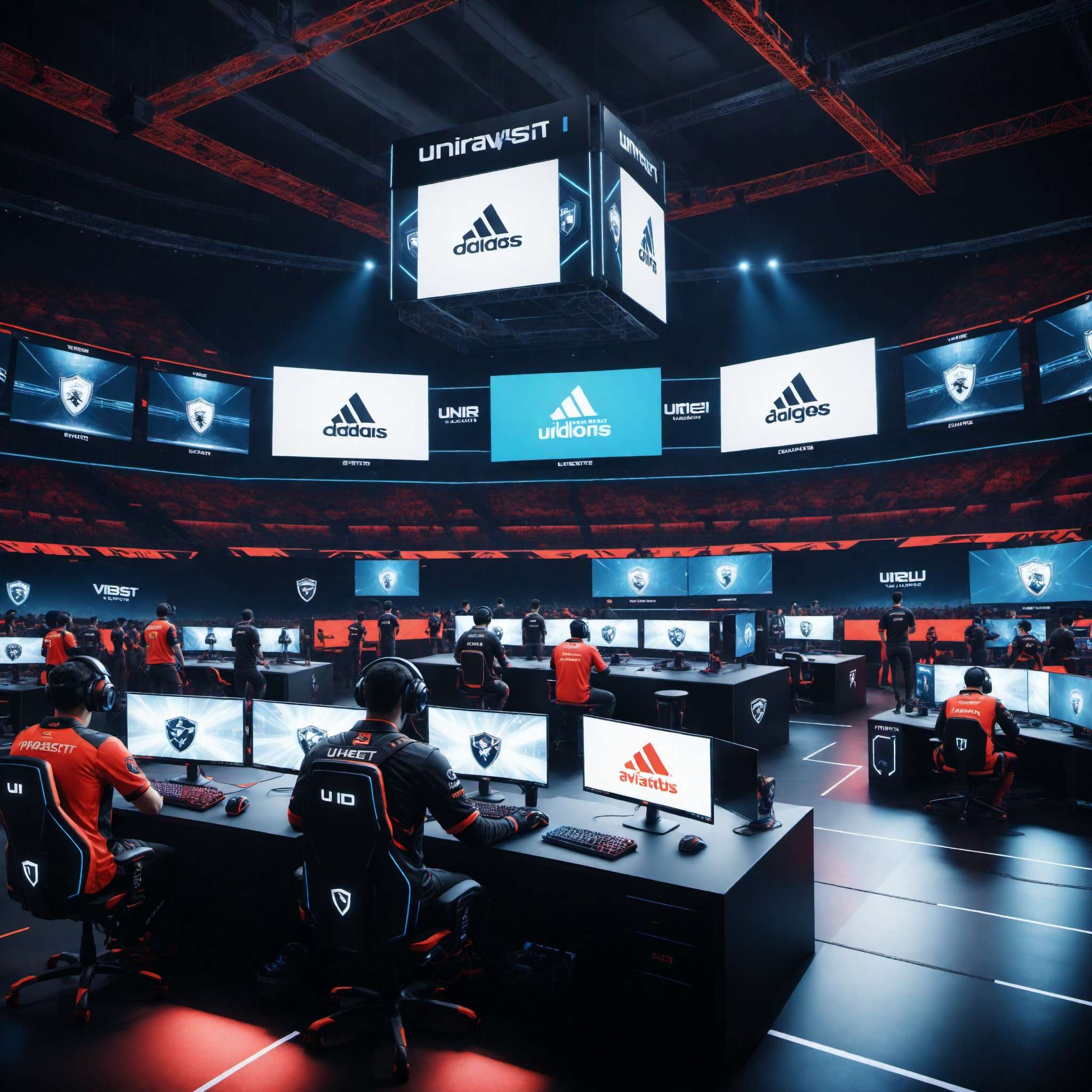
© Copyright , ZombieBunny.Org
The economic potential of Esports
The economic potential of Esports is colossal. The industry’s rapid growth, coupled with its ability to attract a young, tech-savvy audience, has caught the attention of investors, advertisers, and media companies worldwide. As of 2021, the global Esports market is valued at over $1.08 billion, with a forecasted compound annual growth rate (CAGR) of 14.5% until 2023.
One of the primary drivers of this economic potential is advertising and sponsorship. Brands, recognizing the value of the engaged, global audience that Esports commands, have invested heavily. In fact, brand investment, comprising advertising, sponsorship, and media rights, is projected to reach $844 million in 2021, making up 77% of the total Esports revenues.
Furthermore, Esports’ ability to generate substantial streaming content represents another significant economic opportunity. Platforms like Twitch and YouTube Gaming have monetized this content through subscriptions, donations, and ad revenues.
Lastly, the sale of merchandise and tickets for live events, though impacted by the COVID-19 pandemic, represents another revenue stream. As the world returns to normalcy and live events resume, this sector of the industry is expected to rebound.
In summary, the economic potential of Esports is immense, driven by multiple revenue streams, and its appeal to a desirable demographic. As the industry continues to mature and evolve, its economic impact is expected to grow accordingly.
Major players in the Esports market
The Esports market is characterized by a diverse range of major players, all contributing to the industry’s booming success. These key stakeholders span numerous sectors, from game developers and teams to streaming platforms and investors.
Game developers, such as Riot Games (League of Legends), Valve Corporation (Dota 2, Counter-Strike), and Activision Blizzard (Overwatch, Call of Duty), are the backbone of the industry. They create the games that anchor the Esports ecosystem and often organize and sponsor the major tournaments.
Esports teams, such as Team Liquid, Cloud9, and Fnatic, play a pivotal role. These organizations scout and train players, participate in tournaments, and build fan bases. Their success often drives the popularity of the games they specialize in and contributes to the overall growth of the industry.
Streaming platforms, notably Twitch and YouTube Gaming, have also emerged as significant players. They provide the virtual arenas where Esports is watched, making the games accessible to millions worldwide and generating substantial ad revenue.
Lastly, investors and sponsors, ranging from traditional sports teams and celebrities to major corporations, have played a crucial role in the financial growth of the Esports market. Their investment has provided the capital needed for the industry’s expansion and has helped propel Esports into mainstream consciousness.
Together, these major players form a dynamic and interconnected ecosystem driving the advancement of the Esports market.
Revenue streams in Esports
The Esports industry is sustained by several lucrative revenue streams, each contributing to its economic vitality. Among these, sponsorships make up the largest portion of revenue. Major brands from various industries sponsor teams, players, and tournaments, leveraging the wide reach and demographic appeal of Esports to promote their products and services.
Advertising is another significant revenue stream. With millions of viewers tuning in to watch Esports events, both online and offline, advertisers have a sizeable audience to target. Advertisements can be seen during live streams, on player jerseys, and even within the games themselves.
Media rights also contribute to the industry’s revenues. Streaming platforms, television networks, and other media outlets pay for the rights to broadcast Esports events, and these rights can fetch high prices due to the extensive viewership of such events.
Merchandising and ticket sales, while currently a smaller portion of total revenue, have considerable growth potential. Fans purchase team merchandise, while major tournaments sell tickets for live audience participation. This sector of the industry is expected to rebound as the global situation around the COVID-19 pandemic improves and live events resume.
Lastly, game publishers often generate revenue through the sale of in-game items and premium content. This not only contributes to the game’s profitability but also enhances player engagement. These diverse revenue streams together paint a picture of a thriving industry with sustainable economic potential.
Inside the Arena: The Life of Esports Professionals
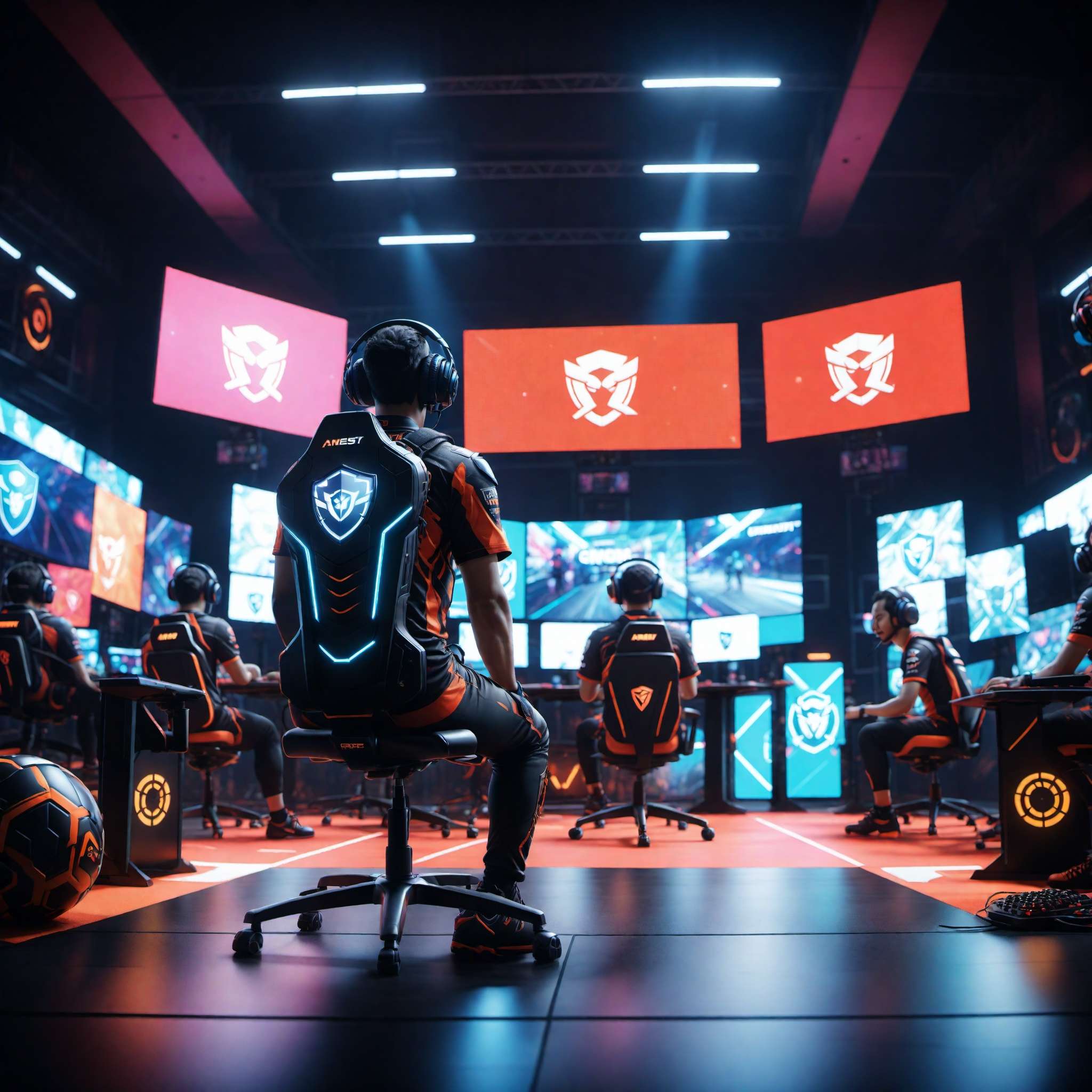
© Copyright , ZombieBunny.Org
Training and lifestyle of Esports professionals
The life of an Esports professional is characterized by rigorous training schedules, a unique lifestyle, and the relentless pursuit of excellence. Much like traditional athletes, Esports professionals spend countless hours honing their skills. Training can include 8-10 hours of gameplay per day, focusing on strategy, teamwork, and individual skill.
Many professional teams have training facilities where players live and practice together under the guidance of coaches and support staff. These facilities often resemble a traditional sports team’s training camp, equipped with gaming stations, strategy rooms, and even fitness areas.
Aside from gameplay, professionals also focus on physical fitness and mental health. Physical exercise is essential to combat the sedentary nature of gaming, and many players have workout routines designed to improve reflexes and endurance. Mental health is equally important, with mindfulness practices and stress management techniques being a crucial part of a player’s routine.
Esports professionals also participate in media events, fan interactions, and promotional activities. This public-facing aspect requires players to develop skills in communication and personal branding.
The lifestyle of an Esports professional is a blend of intense competition and camaraderie, discipline and passion. It’s a testament to the fact that Esports is not just about playing games; it’s about dedication, strategy, and the pursuit of excellence, much like any other professional sport.
Challenges faced by Esports professionals
While the life of an Esports professional can be exciting and rewarding, it is not without its challenges. One of the primary hurdles is the intense competition. With millions of gamers worldwide, standing out and making it to the top requires exceptional skill, dedication, and resilience. The pressure to perform can be immense, especially during high-stake tournaments.
The demanding training schedules can also lead to physical health issues. Repetitive strain injuries are common among Esports professionals due to prolonged gaming sessions. Eye strain, poor posture, and lack of physical activity can also be concerns.
Mental health challenges are another significant issue. The intensity of competition, coupled with the often public nature of performance and critique, can lead to stress, anxiety, and burnout. The lack of stability and uncertainty about career longevity can also add to these pressures.
The industry’s rapid growth and the relative novelty of Esports as a career can also present challenges. These can include navigating contracts, managing finances, and dealing with the business aspects of an Esports career.
Despite these challenges, many professionals find the world of Esports fulfilling and exhilarating. The industry is also evolving to address these issues, with teams investing in physical and mental health resources, and organizations working to ensure fair treatment and support for players.
Success and fame in the Esports world
Success in the Esports world can be a thrilling experience. Professional players who rise to the top of their games can achieve a level of fame and recognition that rivals traditional sports stars. They command millions of followers on social media, are celebrated for their skill and strategic acumen, and can even become influential figures in the pop culture landscape.
The financial rewards can also be significant. Top players earn substantial income through tournament winnings, team salaries, sponsorships, and streaming revenue. For instance, Johan Sundstein, an Esports player known as “N0tail”, has earned over $7 million in prize money alone, playing Dota 2.
Beyond the financial aspect, the sense of achievement and recognition can also be immensely rewarding. Winning a major tournament, performing a spectacular play, or simply being acknowledged as one of the best in the world at the game one loves can be an exhilarating experience.
However, with fame comes responsibility. Esports professionals are role models to millions of fans, particularly younger ones, and their actions and words can have a significant impact. Many use their platforms to promote positive messages, engage with their communities, and contribute to the growth of Esports.
In conclusion, success and fame in the Esports world can be as challenging as it is rewarding, requiring not only gaming skills but also resilience, adaptability, and a strong sense of responsibility.
Connecting Globally: Esports as a Community
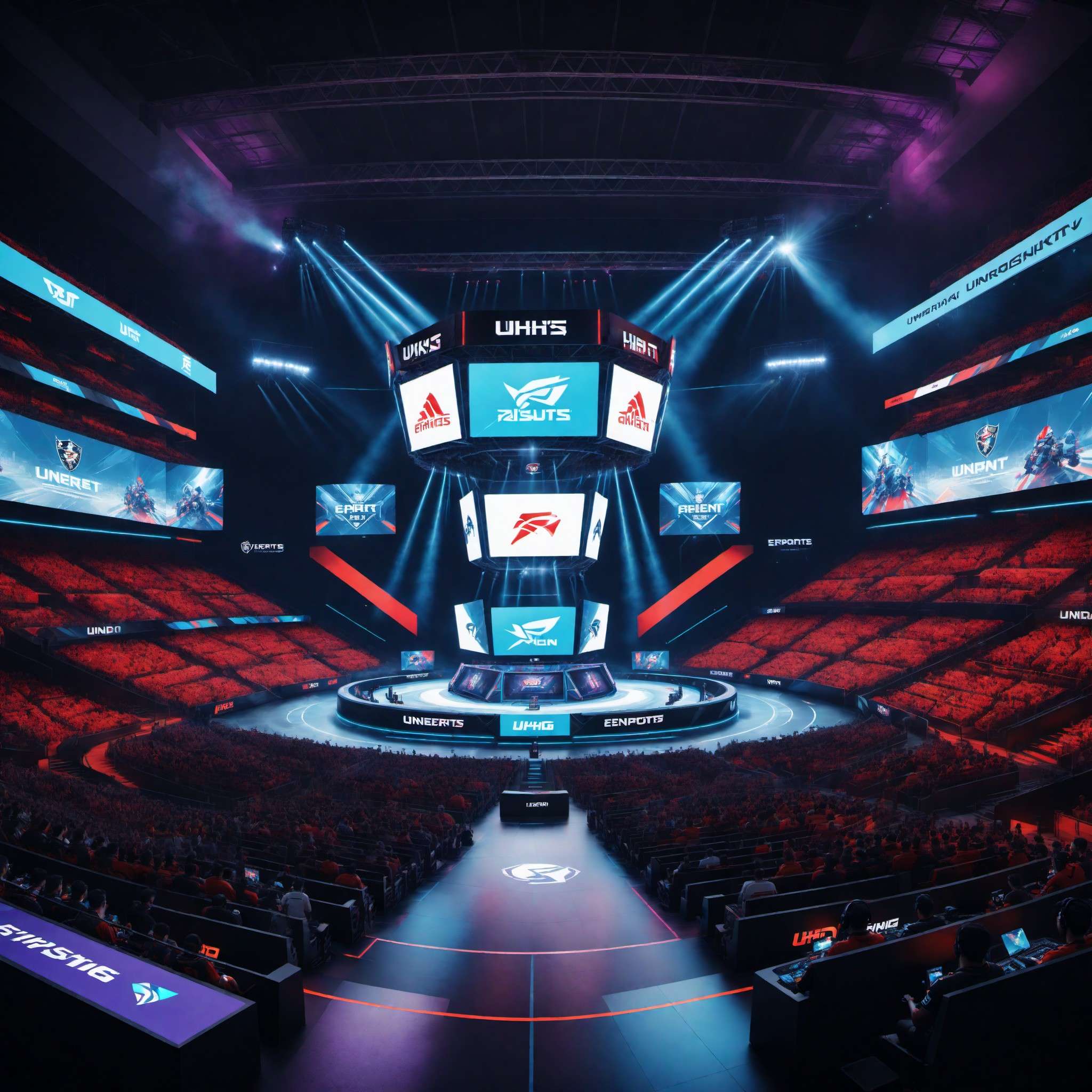
© Copyright , ZombieBunny.Org
The role of community in Esports
The role of community in Esports is pivotal. It is the fans, the players, and the countless individuals interacting and engaging with the games that make Esports more than just a collection of digital competitions. These communities provide a sense of belonging, camaraderie, and shared passion that is integral to the spirit of Esports.
Online platforms like Twitch and Discord serve as virtual gathering spots where fans can watch games together, discuss strategies, celebrate victories, and commiserate over losses. These platforms foster a sense of global community, connecting individuals across different geographies, cultures, and backgrounds.
Moreover, the community also plays a crucial role in shaping the games themselves. Feedback from players and fans often influences game updates and changes. Developers actively engage with their communities, understanding that the success of a game is tied to its ability to resonate with its audience.
Esports communities also contribute to wider societal discussions. Issues like diversity, inclusivity, and mental health are frequently discussed within Esports forums, contributing to broader awareness and understanding.
In essence, the community is the heart of Esports. It is the shared passion, the collective celebrations and disappointments, and the connections formed that make Esports a truly global, inclusive, and dynamic phenomenon.
Popular Esports community platforms
Several online platforms have emerged as popular community hubs in the Esports world. These platforms not only allow fans to watch tournaments and gameplay but also foster a sense of community by enabling interaction, discussion, and engagement.
Twitch is arguably the most prominent of these platforms. As the leading live-streaming platform for gamers, Twitch hosts millions of unique broadcasters and boasts an average of over 15 million daily active users. It allows fans to watch their favorite players and teams, interact with them through chat, and even support them through subscriptions and donations.
Discord also plays a crucial role in the Esports community. Originally designed as a communication tool for gamers, Discord has evolved into a community platform where fans, players, and teams can create dedicated servers for discussion, collaboration, and socializing.
Reddit is another significant platform, with numerous subreddits dedicated to specific games, teams, and aspects of Esports. Here, fans can engage in in-depth discussions, share content, and stay updated on the latest news.
Twitter and YouTube also host substantial Esports communities. Many players, teams, and tournament organizers maintain active Twitter profiles for updates and fan interaction, while YouTube is a popular platform for sharing game highlights, player interviews, and other Esports content.
These community platforms are not just additional features of the Esports landscape; they are integral to its function, growth, and appeal.
The global impact of the Esports community
The global impact of the Esports community is profound and multifaceted. It transcends the realm of gaming and influences various aspects of society, economics, and culture.
On a societal level, the Esports community fosters global connections and cross-cultural exchanges. Fans and players from different parts of the world come together, united by their shared passion for gaming. This global interaction can promote mutual understanding, respect, and inclusivity.
Economically, the community’s engagement drives the industry’s growth and profitability. It’s the millions of fans watching tournaments, purchasing merchandise, and engaging with content that make Esports a lucrative market. Their demand for content also fuels innovation in related sectors like streaming technology and gaming hardware.
Culturally, the Esports community is influencing mainstream media and entertainment. Esports tournaments are broadcast on major sports networks, professional gamers are becoming household names, and elements of gaming culture are permeating music, fashion, and other aspects of popular culture.
Furthermore, the community also plays a role in shaping the future of Esports, with their feedback and engagement influencing game development, tournament formats, and industry practices.
In essence, the global impact of the Esports community is a testament to the power of collective passion. It’s a demonstration of how a shared love for digital competition can connect people across continents, drive economic growth, and shape cultural trends.
Innovations and Trends: The Future of Esports

© Copyright , ZombieBunny.Org
Emerging technologies in Esports
Emerging technologies are playing a pivotal role in shaping the future of Esports, enhancing both the player experience and spectator engagement. Among these innovations, Virtual Reality (VR) and Augmented Reality (AR) stand out. VR provides immersive experiences, allowing players to step inside the game world. While still in its early stages in Esports, VR’s potential to revolutionize gameplay and spectatorship is immense.
AR, on the other hand, enhances the viewing experience by overlaying digital information onto the real world. This technology can provide viewers with real-time stats, player information, and instant replays, enhancing their understanding and enjoyment of the game.
Artificial Intelligence (AI) is another technology making headway in Esports. From improving game design to providing personalized training for players, the applications of AI are vast. AI can also enhance viewer experience by automating highlight reel creation or predicting match outcomes.
Blockchain technology, known for powering cryptocurrencies, also has potential applications in Esports. It can provide secure, transparent transactions for in-game purchases and ensure fair play by recording game data on immutable ledgers.
Lastly, advances in streaming technology continue to shape Esports. Higher quality streams, interactive features, and multi-platform accessibility are all areas of ongoing development. As these technologies continue to evolve, they promise to take the Esports experience to new heights, for players and fans alike.
Predicted trends for the Esports industry
The future of the Esports industry is ripe with exciting trends and possibilities. One of the key predictions is the continued growth and expansion of the industry, powered by increasing global internet penetration, the rise of mobile gaming, and the ongoing investment from traditional sports teams, celebrities, and big brands.
In terms of audience, the fan base is expected to grow even more diverse, with increasing female engagement and a broadening age demographic. Interactive viewership is also predicted to rise, with fans wanting more than just passive viewing. Technologies like VR and AR can play a significant role in this, providing immersive and interactive experiences.
The rise of mobile Esports is another anticipated trend. While PC and console gaming currently dominate the industry, the accessibility and convenience of mobile gaming are expected to drive its growth in the Esports realm.
Education is another area where Esports is set to make its mark. More universities are expected to offer Esports programs, acknowledging the industry’s potential to teach valuable skills like teamwork, strategic thinking, and digital literacy.
The integration of Esports into mainstream culture is also predicted to continue, with more cross-industry collaborations with sectors like music, fashion, and film.
In essence, the future of Esports promises more growth, more diversity, more innovation, and deeper integration into mainstream culture, affirming its place in the global entertainment landscape.
Potential opportunities and challenges for Esports
The future of Esports holds immense opportunities, but it also presents certain challenges that need to be addressed for the industry to reach its full potential.
One of the biggest opportunities is the continued growth and expansion of the industry. With increasing global internet penetration, the rise of mobile gaming, and the ongoing investment from traditional sports teams, celebrities, and big brands, the industry is poised for explosive growth.
There is also significant potential in emerging markets. Countries like India, Brazil, and parts of Southeast Asia have huge populations of young, tech-savvy individuals who are just beginning to tap into Esports, representing a vast, untapped audience for the industry.
However, challenges persist. Ensuring fair play and integrity in competitions is a major issue, with concerns around cheating, doping, and match-fixing. Regulatory frameworks and enforcement mechanisms are needed to mitigate these risks.
Maintaining player health and wellbeing is another critical challenge. The intense training schedules and high-pressure environments can lead to physical and mental health issues. The industry needs to prioritize player welfare and provide supportive environments for players.
Finally, navigating the business aspects of Esports can be complex, with issues relating to contracts, rights management, and revenue distribution. As the industry matures, clear guidelines and fair practices will need to be established to protect the interests of all stakeholders.
Overall, while the future of Esports is incredibly promising, it will require concerted effort and thoughtful leadership to overcome these challenges and unlock its full potential.
Esports Education: The Academia Embracing Esports
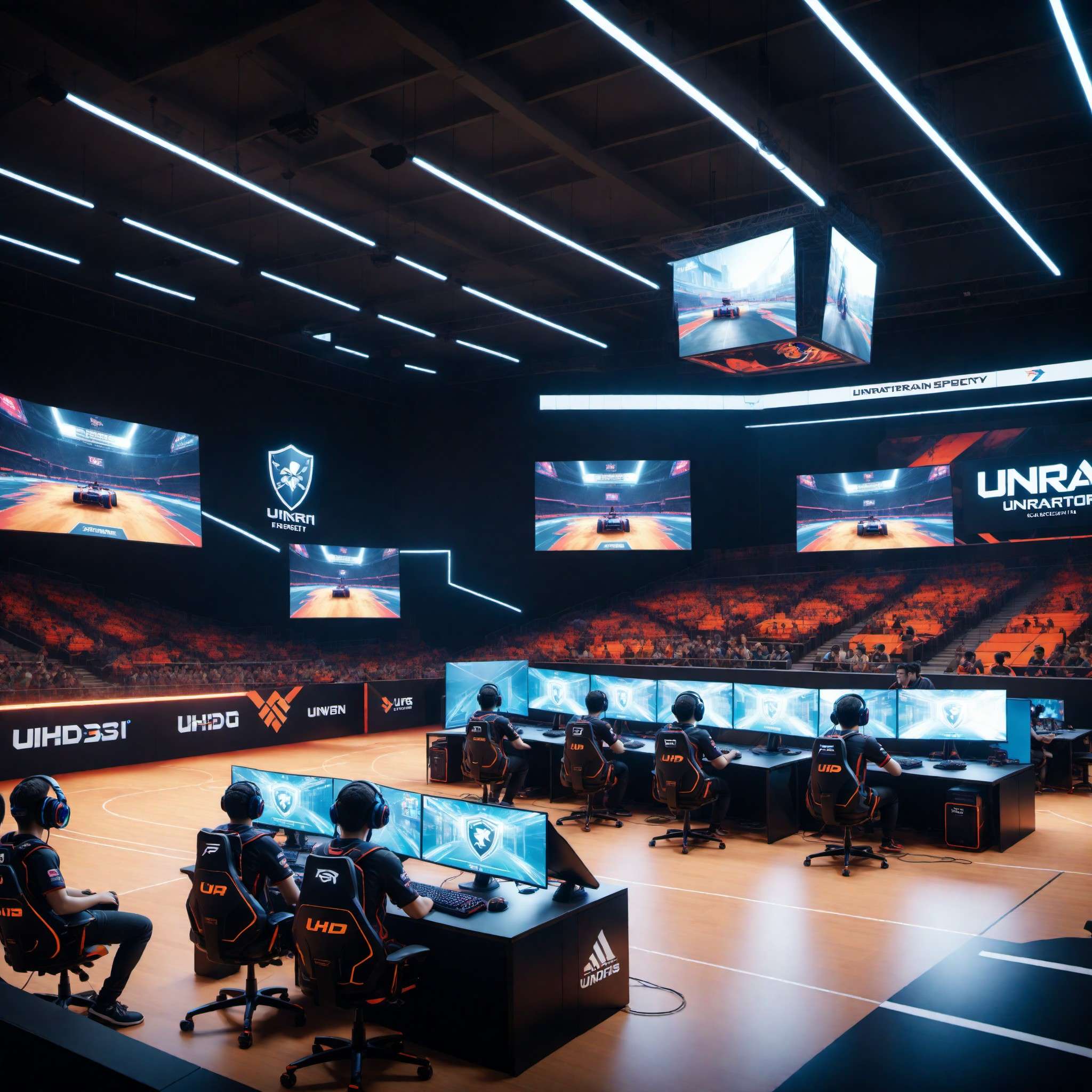
© Copyright , ZombieBunny.Org
The role of education in Esports
Education plays a significant role in the world of Esports, spanning from primary schools to universities. Many educational institutions are recognizing the value of Esports in teaching a range of valuable skills and are integrating it into their curricula.
At the primary and secondary school level, Esports can be used to enhance students’ teamwork, strategic thinking, and problem-solving skills. Schools are increasingly forming Esports clubs and teams, providing students with an engaging platform to develop these competencies.
At the university level, the integration of Esports is even more pronounced. Many universities now offer scholarships for Esports, acknowledging the skills and dedication required to excel in competitive gaming. Furthermore, universities are starting to offer degree programs in Esports management, marketing, and other related fields, preparing students for careers in the booming Esports industry.
Esports also plays a role in fostering digital literacy and understanding of technology among students. Given the digital nature of Esports, participants often become adept at navigating digital platforms, understanding hardware and software, and even coding and game design.
Moreover, education in Esports extends beyond formal learning environments. Online platforms, tutorials, and coaching services offer opportunities for aspiring players to learn and improve their skills.
In essence, the role of education in Esports is multifaceted. It not only prepares students for careers in the industry but also equips them with valuable skills for the digital age.
Esports in schools and colleges
Esports is increasingly being embraced by schools and colleges, marking a significant shift in the academia. Many educational institutions are recognizing the potential of Esports not just as a recreational activity, but as a platform to develop essential skills and prepare students for future careers.
In high schools, Esports clubs and teams are becoming more common. These provide students with opportunities to engage in healthy competition, develop teamwork and strategic thinking skills, and learn about digital technology. These clubs often participate in local, regional, and even national tournaments, fostering a sense of community and school spirit.
At the college level, the integration of Esports is even more pronounced. Numerous universities now offer scholarships for Esports, acknowledging the skills and dedication required to excel in competitive gaming. These scholarships not only provide financial support but also validation for the time and effort students put into their gaming pursuits.
Furthermore, colleges are starting to offer degree programs related to Esports, such as Esports management, marketing, and game design. These programs prepare students for careers in the booming Esports industry and reflect the growing recognition of Esports as a legitimate field of study and profession.
In essence, the increasing presence of Esports in schools and colleges signifies a broader shift in education, one that acknowledges the value of digital technology and gaming in preparing students for the future.
Career opportunities through Esports education
Esports education opens up a wide range of career opportunities in the booming Esports industry and beyond. As the industry continues to grow, there is an increasing demand for professionals with an understanding of Esports, from game design and event management to marketing and analytics.
One obvious career path is becoming a professional Esports player. While this requires exceptional skill and dedication, education in Esports can provide aspiring players with the training, strategic understanding, and mental preparation needed to compete at the highest level.
However, the opportunities extend far beyond professional play. The industry needs skilled game designers and developers to create and maintain the games at the heart of Esports. Event planners and managers are needed to organize tournaments and competitions. Marketers and PR professionals are essential to promote teams, players, and events.
There is also a demand for data analysts to interpret game data, player statistics, and audience metrics. Broadcast professionals are needed to stream tournaments and create engaging content for fans. Additionally, the growing focus on player health and wellbeing has created opportunities for psychologists, coaches, and fitness experts specializing in Esports.
In essence, Esports education doesn’t just prepare students for a career in gaming. It equips them with a unique set of skills and knowledge that are increasingly valuable in the digital age, paving the way for a wide range of exciting career opportunities.
Esports and Entertainment: The Intersection of Gaming and Media
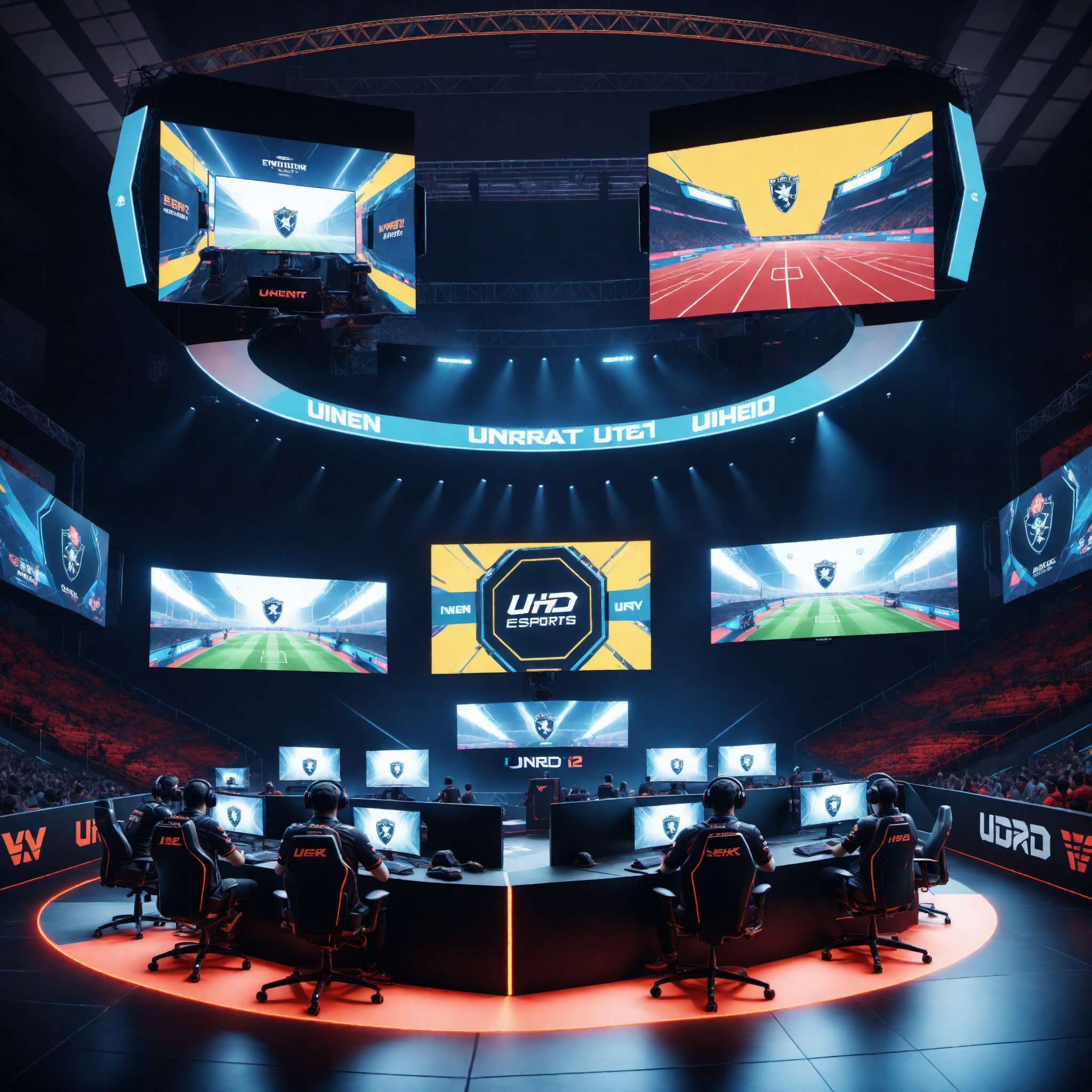
© Copyright , ZombieBunny.Org
Esports as a form of entertainment
Esports has emerged as a major form of entertainment, captivating millions of viewers worldwide with its thrilling competitions, engaging content, and dynamic community. It’s not just about playing games; it’s about watching, discussing, and being part of a passionate global community.
One of the key entertainment aspects of Esports is the live tournaments. These events are spectacles in their own right, with professional players battling it out in high-stakes competitions. Viewers tune in to watch the skillful gameplay, the strategic maneuvers, and the sheer drama of these tournaments. The excitement is comparable to traditional sports, making it a compelling viewing experience.
Beyond the tournaments, Esports offers a wealth of engaging content. Players stream their gameplay, interact with viewers, and share insights into their strategies and lifestyles. Teams produce content featuring their players, giving fans a behind-the-scenes look at the world of professional gaming.
Furthermore, the Esports community itself contributes to the entertainment value. Fans engage in discussions, create fan art, and even produce their own content, adding layers to the Esports experience.
Esports also intersects with other forms of media and entertainment. Professional gamers are becoming celebrities, game elements are appearing in music and films, and collaborations with traditional sports and entertainment figures are becoming common.
In essence, Esports is a multi-faceted form of entertainment, offering thrilling competitions, engaging content, and a dynamic community experience that resonates with the digital generation.
Media coverage of Esports
Media coverage of Esports has grown significantly in recent years, reflecting the industry’s rise in popularity and its crossover into mainstream culture. Major sports networks, news publications, and online platforms are all dedicating considerable resources to covering Esports, providing fans with a wealth of information and content.
Sports networks like ESPN and Fox Sports have started broadcasting major Esports tournaments, bringing the excitement of these competitions into the homes of millions. These broadcasts often feature professional commentary, in-depth analysis, and high-quality production values, mirroring the coverage of traditional sports events.
News outlets are also covering the Esports industry, reporting on tournament results, player profiles, and industry trends. This coverage not only keeps fans informed but also brings the world of Esports to a broader audience.
Online media plays a major role in Esports coverage. Websites, blogs, and social media platforms provide real-time updates, fan discussions, and detailed analyses. Live-streaming platforms like Twitch and YouTube host streams of tournaments and individual gameplay, allowing fans to watch their favorite players and teams in action.
Furthermore, documentaries and series about Esports are appearing on platforms like Netflix, offering deeper insights into the world of professional gaming.
In essence, media coverage of Esports is extensive and varied, reflecting the industry’s growth and popularity. It is a testament to Esports’ place in the entertainment landscape and its appeal to a diverse, global audience.
Influence of Esports personalities
Esports personalities play a significant role in the industry’s appeal and influence. These individuals, be they professional players, streamers, or commentators, are the faces of Esports. They command vast online followings, influence trends, and contribute significantly to the Esports culture.
Professional players are at the forefront of this group. Their exceptional skills, strategic acumen, and competitive spirit are a draw for fans. Players like Faker in League of Legends, N0tail in Dota 2, and Bugha in Fortnite have become celebrities within the gaming community, influencing game trends, tactics, and even in-game culture.
Streamers, who broadcast their gameplay and interact with viewers, are another group of influential personalities. They shape the community through their content, game choices, and interactions with fans. Streamers like Ninja and Shroud have amassed millions of followers and significantly impact viewer preferences and trends.
Commentators and analysts also play a critical role. Their insights, analyses, and narratives enhance the viewing experience, making games more accessible and exciting to watch. They can influence fan appreciation for strategic nuances and finer aspects of gameplay.
These personalities often transcend gaming, influencing broader pop culture. They collaborate with musicians, appear in TV shows, and even launch fashion lines.
In essence, Esports personalities are more than just entertainers. They are trendsetters, influencers, and community leaders, playing a significant role in shaping the Esports industry and its influence on mainstream culture.
Esports for All: Inclusion and Diversity in the Esports World

© Copyright , ZombieBunny.Org
Promoting diversity and inclusion in Esports
Promoting diversity and inclusion is a crucial aspect of the Esports industry. As a global phenomenon, Esports has the potential to bring together individuals from different backgrounds, cultures, and lifestyles, united by a shared passion for gaming.
Efforts are being made to ensure that this potential is realized. There are initiatives aimed at increasing the representation of women, people of color, and other historically underrepresented groups in Esports. These include scholarships, training programs, and tournaments specifically for these groups.
Inclusion also extends to individuals with disabilities. With the digital nature of Esports, adaptations can be made to ensure that individuals with physical disabilities can participate. There are also games and tournaments designed specifically for players with disabilities, further promoting inclusion.
Moreover, many organizations within the Esports industry have adopted codes of conduct to promote respectful, inclusive behavior. These codes discourage discriminatory language, harassment, and other forms of exclusionary behavior, ensuring that all participants feel welcomed and respected.
Promoting diversity and inclusion not only makes Esports a more welcoming and vibrant community, it also enriches the industry. Diverse perspectives can lead to innovative strategies, creative content, and a richer fan experience.
In essence, the promotion of diversity and inclusion is not just a moral imperative for the Esports industry, it’s a key to its continued growth and success.
Women in Esports
The role of women in Esports is increasingly being recognized and celebrated. While the industry has been predominantly male-dominated, more and more women are making their mark as players, streamers, team managers, and industry leaders.
On the competitive front, women players are proving their mettle in major tournaments. Players like Scarlett in StarCraft II and Geguri in Overwatch have achieved significant success, breaking stereotypes and inspiring more women to participate in competitive gaming.
Women are also making a significant impact as streamers. Their streams not only provide entertainment but also offer a perspective that can differ from their male counterparts. Streamers like Pokimane and KittyPlays have amassed millions of followers and have become influential figures in the gaming community.
Behind the scenes, women are taking up leadership roles within Esports organizations. They are managing teams, leading marketing campaigns, and influencing industry policies. Their contributions are vital to the growth and success of the industry.
However, there is still much work to be done. Women in Esports often face challenges, including gender bias and online harassment. The industry needs to continue its efforts to promote gender equality and create a safe, inclusive environment for all participants.
In essence, women in Esports are not just participants; they are trailblazers, role models, and integral parts of the industry’s success. Their increasing involvement and recognition is a positive step towards a more diverse and inclusive Esports landscape.
Esports accessibility for all
Esports’ accessibility is one of its most compelling qualities. With the right equipment and internet access, anyone, anywhere, can participate in the world of Esports, either as a player, viewer, or community member.
For players, the digital nature of Esports allows for flexible participation. Regardless of geographical location, physical ability, or schedule constraints, players can engage in competitive gaming. This accessibility has enabled a diverse range of individuals to participate in Esports, from busy professionals playing in their spare time to individuals with physical disabilities who find traditional sports challenging.
Viewers also benefit from Esports’ accessibility. Live-streaming platforms, social media, and online forums provide a plethora of ways to watch games, follow teams, and engage with the community. This accessibility enables a global fan base, bringing together individuals from different cultures, time zones, and language groups.
However, ensuring accessibility for all is an ongoing effort. It requires addressing digital divide issues, such as internet access and quality, as well as creating inclusive gaming environments that cater to players of different abilities, backgrounds, and preferences.
In essence, the accessibility of Esports is a key factor in its global appeal and success. It allows a diverse range of individuals to participate in the thrilling world of competitive gaming, fostering an inclusive, global community united by a shared passion for Esports.
Concluding Perspectives: The Game Continues

© Copyright , ZombieBunny.Org
The evolving journey of Esports
The journey of Esports is a story of phenomenal growth and evolution. From its humble beginnings as small-scale competitions among friends to its current status as a billion-dollar industry with a global audience, the trajectory of Esports has been nothing short of remarkable.
This journey has been driven by various factors. Technological advancements, especially in internet connectivity and gaming technology, have played a crucial role in enabling online competitions and live-streaming. The rise of social media and online communities has fostered a sense of global community among players and fans.
The recognition of Esports by mainstream culture has also been pivotal. The involvement of traditional sports teams, celebrities, and major brands has brought legitimacy and visibility to Esports. Media coverage and the integration of Esports into mainstream entertainment have further propelled its popularity.
The journey, however, is far from over. Esports continues to evolve, driven by innovative technologies, emerging markets, and a growing and diversifying fan base. The industry faces challenges, from ensuring fair play and player welfare to promoting diversity and inclusion. But with the continued commitment of players, fans, and industry stakeholders, the future of Esports looks promising.
In essence, the evolving journey of Esports is a testament to the power of digital technology, community, and a shared passion for gaming. As the industry continues to grow and adapt, the game indeed continues.
The potential future of Esports
The potential future of Esports holds immense promise. As technology continues to evolve, as audiences grow and diversify, and as the industry matures, the prospects for Esports are brighter than ever.
One promising area is the integration of emerging technologies. Virtual and augmented reality, artificial intelligence, and blockchain technology have the potential to revolutionize gameplay, spectator experience, and the business of Esports.
The continued growth of the Esports audience is another exciting prospect. As more people around the world gain access to the internet and as the appeal of Esports broadens to include a more diverse demographic, the fan base is set to grow exponentially. This growth is likely to be accompanied by increased commercial opportunities and greater investment in the industry.
The maturation of the industry also holds great potential. As Esports continues to professionalize and institutionalize, we can expect to see more structured leagues, clearer career paths, and better player welfare measures. The integration of Esports into mainstream education also holds significant potential for the industry.
In essence, the future of Esports looks promising. While challenges will undoubtedly arise, the industry’s continued evolution, driven by technological innovation, audience growth, and industry maturation, suggests that the potential of Esports is just beginning to be unlocked. As we move forward, the game truly continues.
Final thoughts on the impact of Esports
The impact of Esports extends far beyond the gaming world. It is transforming entertainment, influencing mainstream culture, driving technological innovation, and creating new educational and career opportunities. The global reach and accessibility of Esports make it a truly inclusive platform, uniting people from diverse backgrounds around a shared passion.
The economic impact of Esports is also notable. The industry is contributing to job creation, driving investment, and generating significant revenue. As the industry continues to grow, its economic footprint is set to increase, making it a significant player in the global entertainment market.
Esports is also impacting societal norms and perceptions around gaming. It is challenging the stereotype of gaming as an isolating, unproductive activity, showcasing instead the strategic thinking, teamwork, and discipline required in competitive gaming. The recognition of Esports by traditional sports organizations and educational institutions further validates its status as a legitimate sport and field of study.
In essence, the impact of Esports is profound and far-reaching. Its continued growth and evolution promise to drive further change, not only in the gaming world but in society at large. As we look to the future of Esports, it is clear that the game is not just continuing; it is changing the game.
Please support our site and purchase something from our store.







